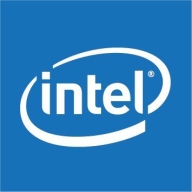

OpenVINO and Google Vertex AI are competing in the AI tools market aimed at streamlined AI model deployment and optimization. Google Vertex AI seems to have the upper hand due to its comprehensive feature set tailored for varied machine learning needs, justifying its higher price point to many users.
Features:OpenVINO focuses on optimizing deep learning models, particularly for efficient execution on Intel hardware, targeting computer vision tasks. Google Vertex AI offers robust integration capabilities with a range of Google Cloud services, making it suitable for end-to-end machine learning workflows. OpenVINO's efficiency on Intel hardware is a major draw for those in such ecosystems. Google Vertex AI supports a wide array of machine learning needs, making it versatile for diverse business applications.
Ease of Deployment and Customer Service:Google Vertex AI provides a seamless deployment experience through Google Cloud's extensive infrastructure and support resources. In contrast, OpenVINO requires more in-depth technical knowledge for setup, focusing on Intel-centric solutions with specialized support.
Pricing and ROI:OpenVINO appeals to those looking for lower initial costs, especially for businesses already invested in Intel ecosystems. Google Vertex AI, despite its higher setup and operational expenses, offers significant ROI for enterprises seeking scalable AI solutions with comprehensive Google service integration.


Build, deploy, and scale ML models faster, with pre-trained and custom tooling within a unified artificial intelligence platform.
OpenVINO toolkit quickly deploys applications and solutions that emulate human vision. Based on Convolutional Neural Networks (CNNs), the toolkit extends computer vision (CV) workloads across Intel hardware, maximizing performance. The OpenVINO toolkit includes the Deep Learning Deployment Toolkit (DLDT).
We monitor all AI Development Platforms reviews to prevent fraudulent reviews and keep review quality high. We do not post reviews by company employees or direct competitors. We validate each review for authenticity via cross-reference with LinkedIn, and personal follow-up with the reviewer when necessary.